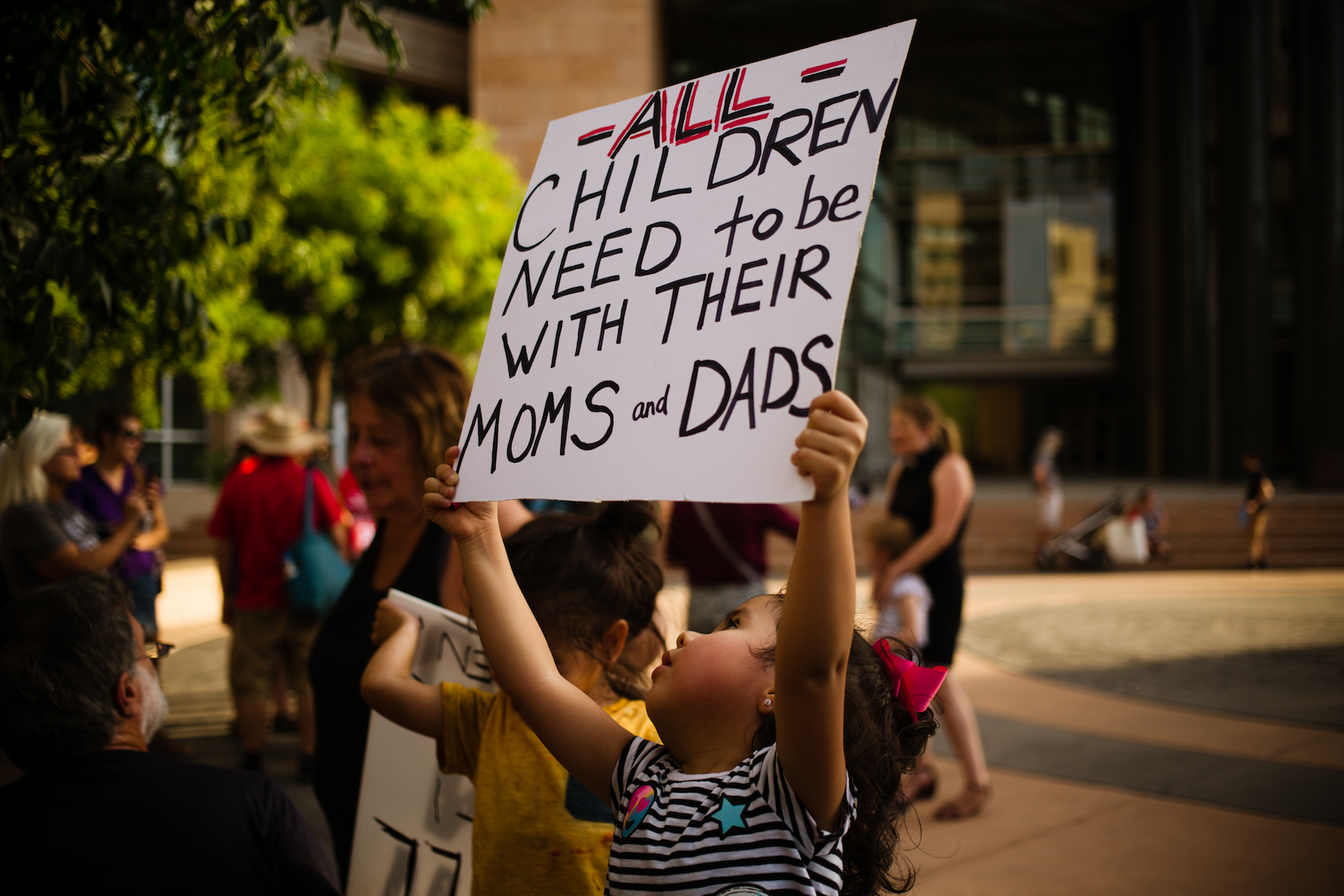Anger. Disbelief. Grief. Outrage. Many of us are feeling emotionally overwhelmed and exhausted as we grapple with the news reports coming out of the United States. As part of the Trump administration’s “zero tolerance” policy, over 2,000 migrant children have been forcibly separated from their parents since April. The stories tell of unimaginable heartache: a baby taken from its breastfeeding mother by an immigration official; a father escaping war only to end his own life in a prison cell after his five-year old son was wrenched from his arms.
We might be tempted to disengage and withdraw. Shut off the news; step away from social media. After all, what can we, as Canadians, really do this side of the border anyway? Quite a lot, actually. What follows are some concrete tips for how Canadians can move from anger to advocacy.
You may unsubscribe from any of our newsletters at any time.
1. Call on Canada to end the Safe Third Country Agreement with the U.S.

While we can’t exert influence as voters in the American system, we can pressure our government. Citizens for Public Justice, an ecumenical organization that supports justice in Canadian policy, suggests calling on Canada to sack this agreement, which requires our border officials to turn away refugees and asylum seekers at the Canada–U.S. border. The U.S., after all, is no longer a “safe country” for people fleeing persecution.
As Deborah Mebude, staff with Citizens for Public Justice (CPJ), tells me, “This action would let our U.S. counterparts know that the treatment of migrants and asylum seekers violates human rights and the rights of the child, and that as a result, Canada does not consider the U.S. a safe country.” CPJ is planning to release an advocacy resource on this very topic on June 20, which also happens to be World Refugee Day. Check cpj.ca for details.
2. Fight for migrant rights here at home.
We like to think that refugee rights are respected in Canada. But advocates say that’s not always the case. The Canadian Coalition for the Rights of Children (CCRC), among other organizations, is working to end the detention of refugee children this side of the border. “The numbers are smaller and the treatment is better, but we are advocating for alternatives,” writes a staff person with CCRC.
Migrant parents and children are, in fact, forcibly separated according to Canadian policy. “What is happening in the U.S. is horrible and heartbreaking, but there are stories here in Canada, too,” shares Cheryl McNamara, Media Relations Coordinator at KAIROS Canada. Under Canada’s foreign caregiver program, women are often forced to leave their own children at home in order to care for other people’s children here. With the program set to expire in November 2019, KAIROS is campaigning for a pathway to permanent residence for foreign caregivers. Visit kairoscanada.org for resources and information on how to participate.
3. Use your voice.

If there’s a message to take away, it’s this: your voice matters. “Sometimes people think that it’s just a letter; it’s just an email. But every voice amplifies the message,” says Deborah Mebude, Public Justice Intern at CPJ. She says that we need to debunk the myth that collective action is no longer possible. Get your friends involved, she urges. Email your MP and copy and paste the message to the people in your circle so that they can do the same.
4. Donate as your dollars allow.
Talk about this issue in your congregations. Take up an offering for the United Church of Canada’s communion partner, the United Church of Christ (designating your gift to Keep Families Together), or another organization working to end this atrocity. After all, the Christian message is ultimately one of compassion, not cruelty.














